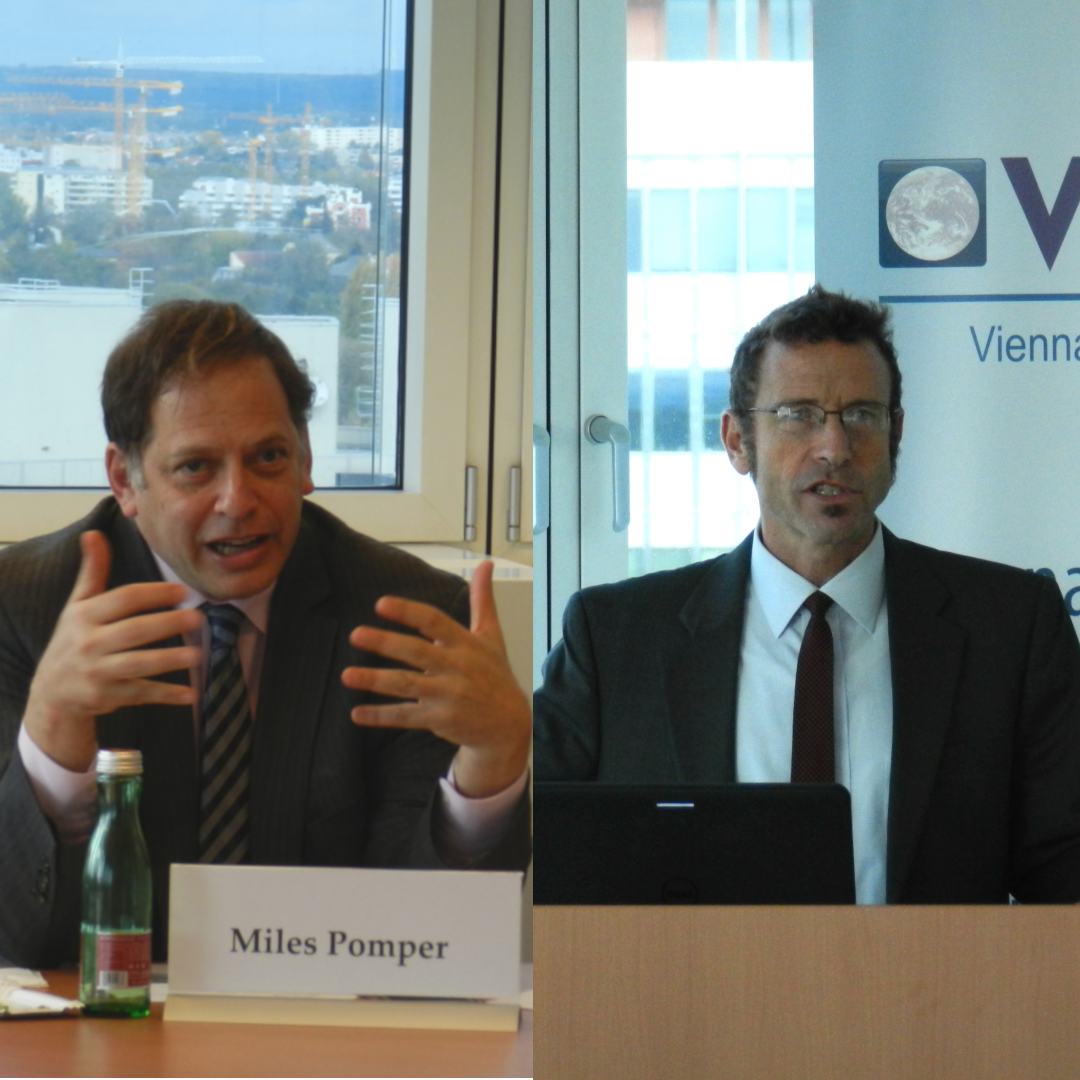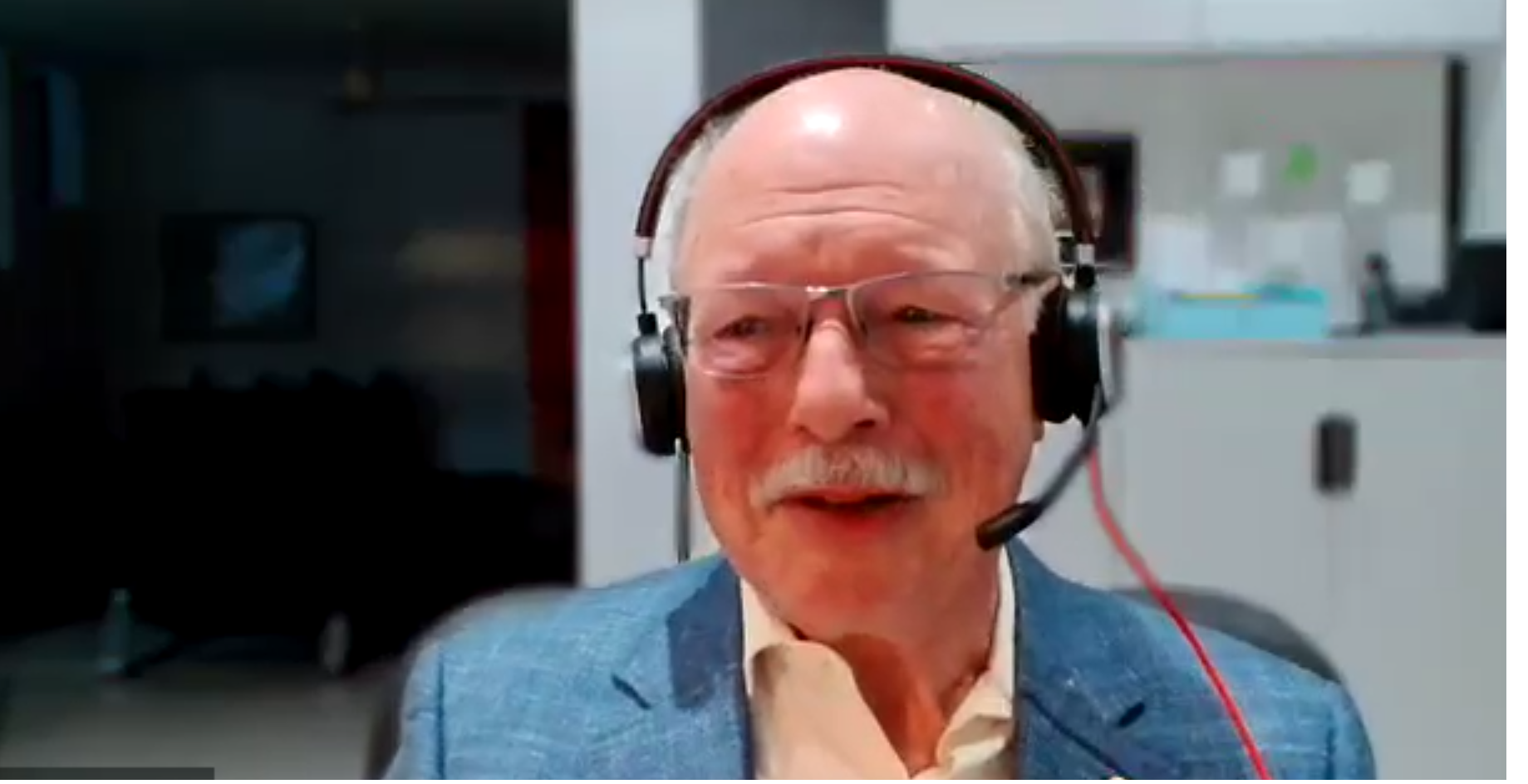
On 2 December 2024, VCDNP Executive Director Elena K. Sokova welcomed Rafael Mariano Grossi, Director General of the International Atomic Energy Agency (IAEA), and Charles Oppenheimer, founder of the Oppenheimer Project and grandson of J. Robert Oppenheimer, to a public conversation on the interconnected promise and peril of nuclear energy.
The speakers explored the mixed legacy of the atom in the 80 years since the development of the first nuclear weapons by the Manhattan Project, surveying current and future nuclear threats. They reflected on the growing interest in nuclear energy for its potential to help solve major global challenges – from mitigating climate change to meeting the growing electricity needs of AI applications – and the IAEA’s special role in ensuring the peaceful nature of nuclear programmes worldwide.
In welcoming a large audience of ambassadors, representatives of international organisations, and non-governmental experts, Ms. Sokova reminded the room of the tense geopolitical context. Pointing towards expanding nuclear arsenals, an unprecedentedly high risk of nuclear escalation, and concerns about the further spread of nuclear weapons, she recalled J. Robert Oppenheimer’s warning of catastrophic consequences in the absence of good-faith international cooperation towards a peaceful nuclear future.
She invited Director General Grossi to elaborate on the impact of geopolitics on the IAEA’s work and to identify priorities for the Agency in preparing for the expected growth of nuclear power around the world.
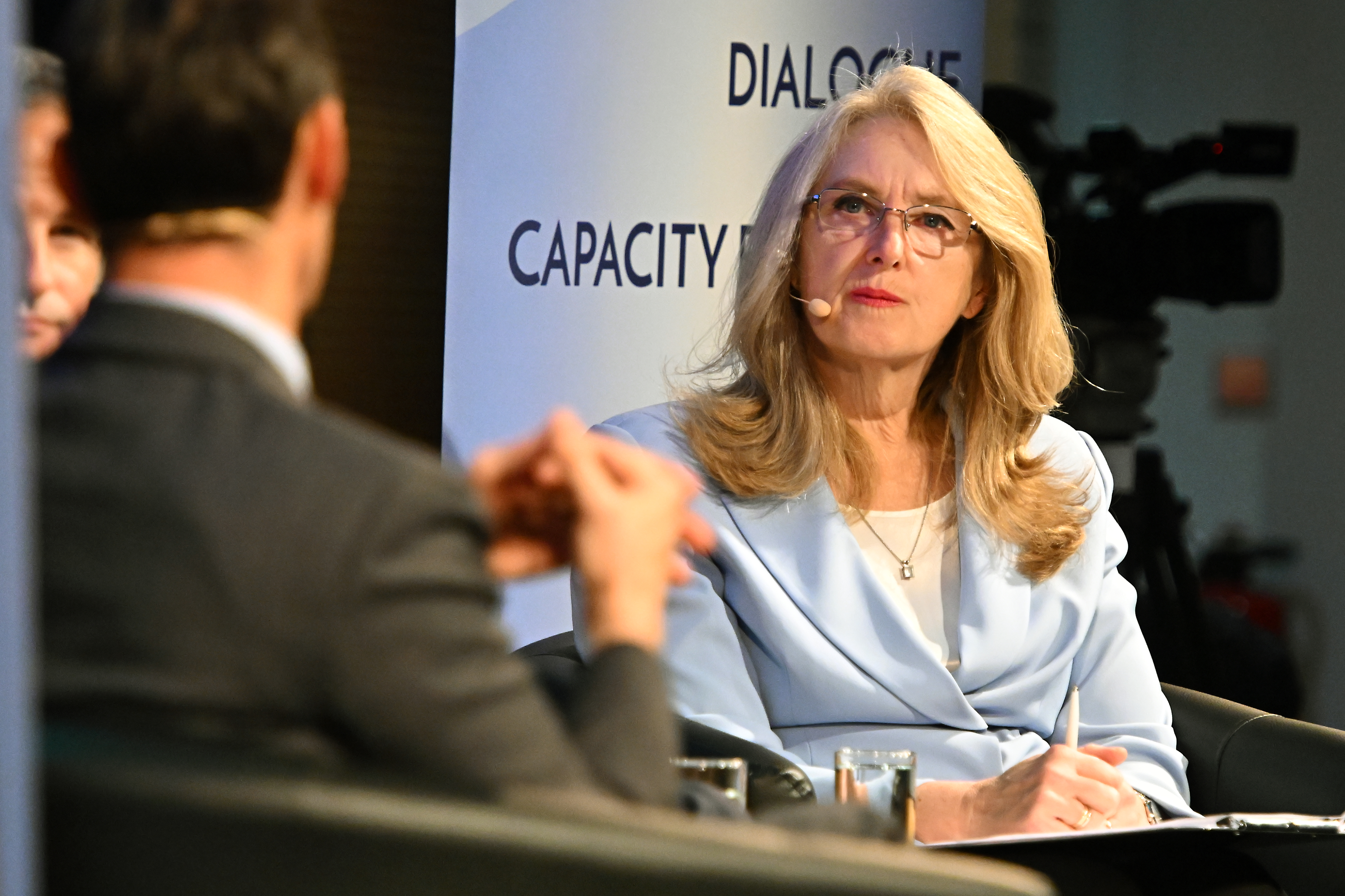
Director General Grossi took note of the increasing interest in acquiring nuclear weapons that several states have expressed in alarmingly open ways, exerting pressure on the non-proliferation regime. At the same time, more and more states are seeking the Agency’s support in developing new or supporting existing nuclear power programmes, reflecting the consensus among over 190 countries achieved at COP28 to accelerate the expansion of nuclear power next to renewable energy sources. Ultimately, he emphasised, the goal of these efforts is sustainable development, not nuclear armament.
Director General Grossi underlined the horizontally and vertically increasing demand on the IAEA’s safeguards system: not only will there be more nuclear power plants built under the 31-nation pledge to triple nuclear energy output by 2050, new small modular reactor (SMR) designs with new opportunities for application, which could make up to 20% of the global reactor fleet, will necessitate new safeguards methods. For example, anticipating a boom in SMRs used to power cargo ships, the IAEA is working with the International Maritime Organization, shipping companies, and the insurance sector to devise a new regulatory framework.
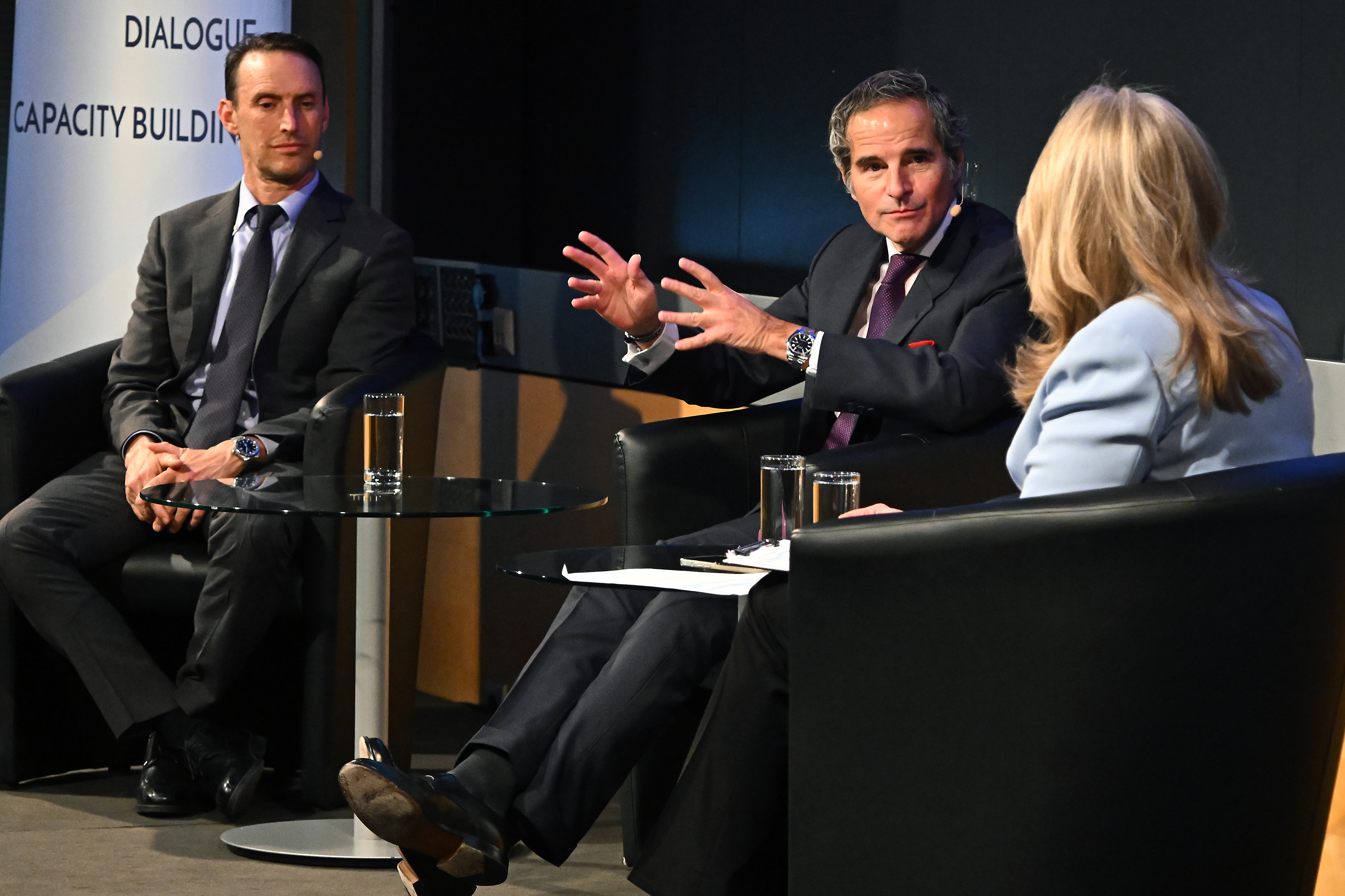
The IAEA safeguards system will adapt to these new realities and is already benefiting from effectiveness and efficiency gains thanks to AI-automated processes. He also stressed that, to facilitate the deployment of SMRs – especially in developing countries – all stakeholders must collaborate. The IAEA is looking towards national regulators, SMR developers, and the nuclear sector at large to work with the Agency on creating faster, harmonised, and more dynamic licensing systems, and to ensure a reliable nuclear supply chain for reactor construction and maintenance.
With the Oppenheimer Project, Charles Oppenheimer leads a civil society initiative catalysing partnerships between policy-makers, experts, and funders to expand nuclear energy production and reduce the nuclear weapons threat, guided by the ideas of J. Robert Oppenheimer. Ms. Sokova invited him to explain the motivation behind the project and to compare the current nuclear threat landscape with his grandfather’s predictions.
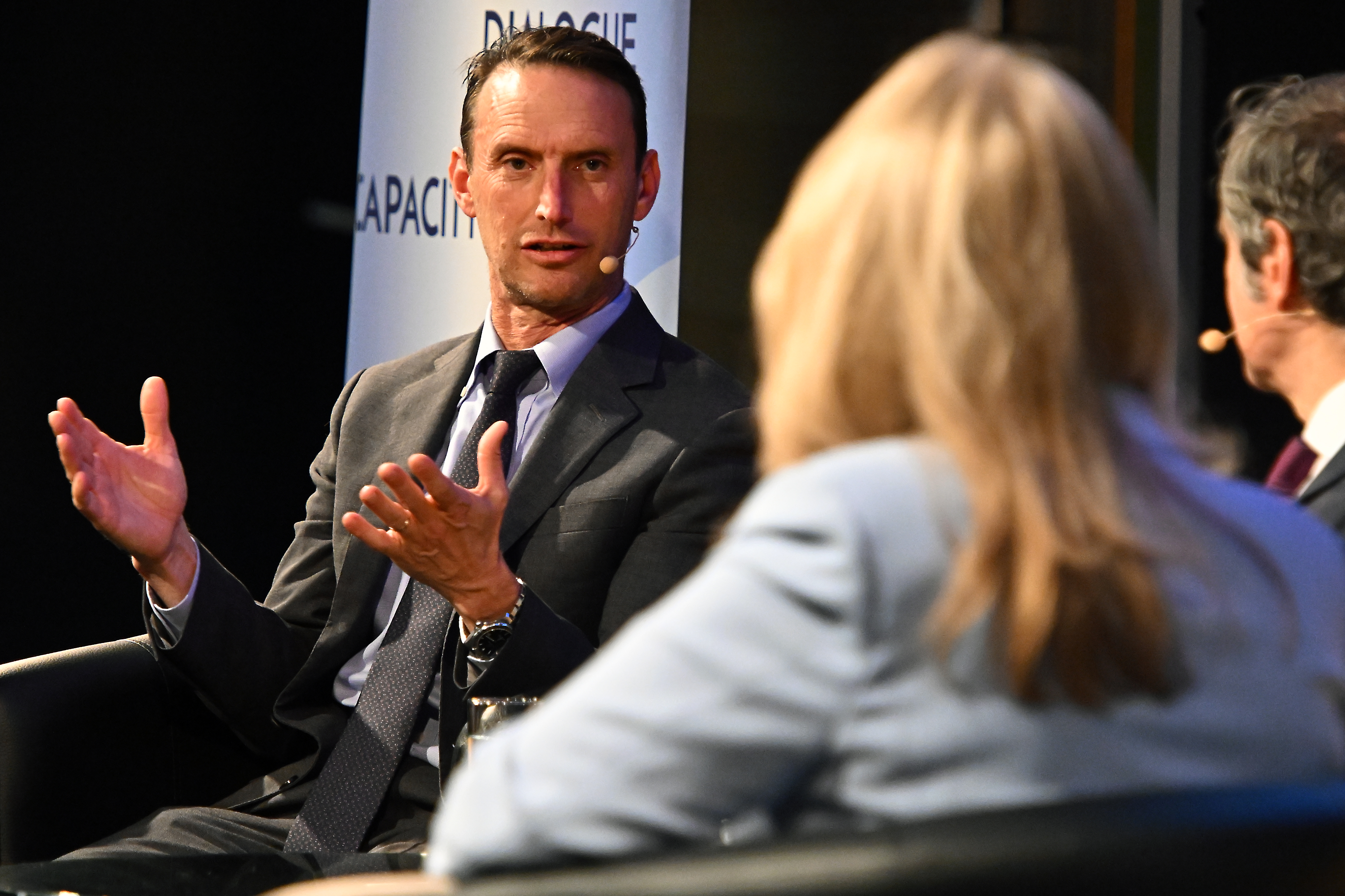
Mr. Oppenheimer explained the project as an effort to learn from the past by promoting J. Robert Oppenheimer’s vision of international cooperation to rein in the nuclear weapons threat and make the positive applications of the atom, from electricity generation to cancer treatment, broadly accessible. In doing so, the project builds on global attention generated by Christopher Nolan’s 2023 film Oppenheimer.
His grandfather understood that, rather than ending all wars by raising the cost of armed conflict, nuclear weapons would introduce an era of unimaginable danger and uncertainty. With a poor outlook for disarmament in the current security environment, the project “pulls hope from where we can get it”, utilising the promise of peaceful nuclear energy as a natural bridgebuilder to unite states in tackling global challenges and eventually reduce nuclear risk.

With public support for nuclear energy having grown significantly, the project convenes discussions with high-net worth individuals and philanthropies interested in the capabilities of nuclear technology to boost investment into decarbonising energy systems and achieving other development goals. Mr. Oppenheimer would like to see part of the $10 billion invested into climate change mitigation by philanthropies every year directed towards nuclear technology solutions. He identified large technology companies as a particularly ripe opportunity for impact as they struggle to reach their net-zero goals with renewable energy alone, especially as fast-evolving AI capabilities are driving up electricity needs.
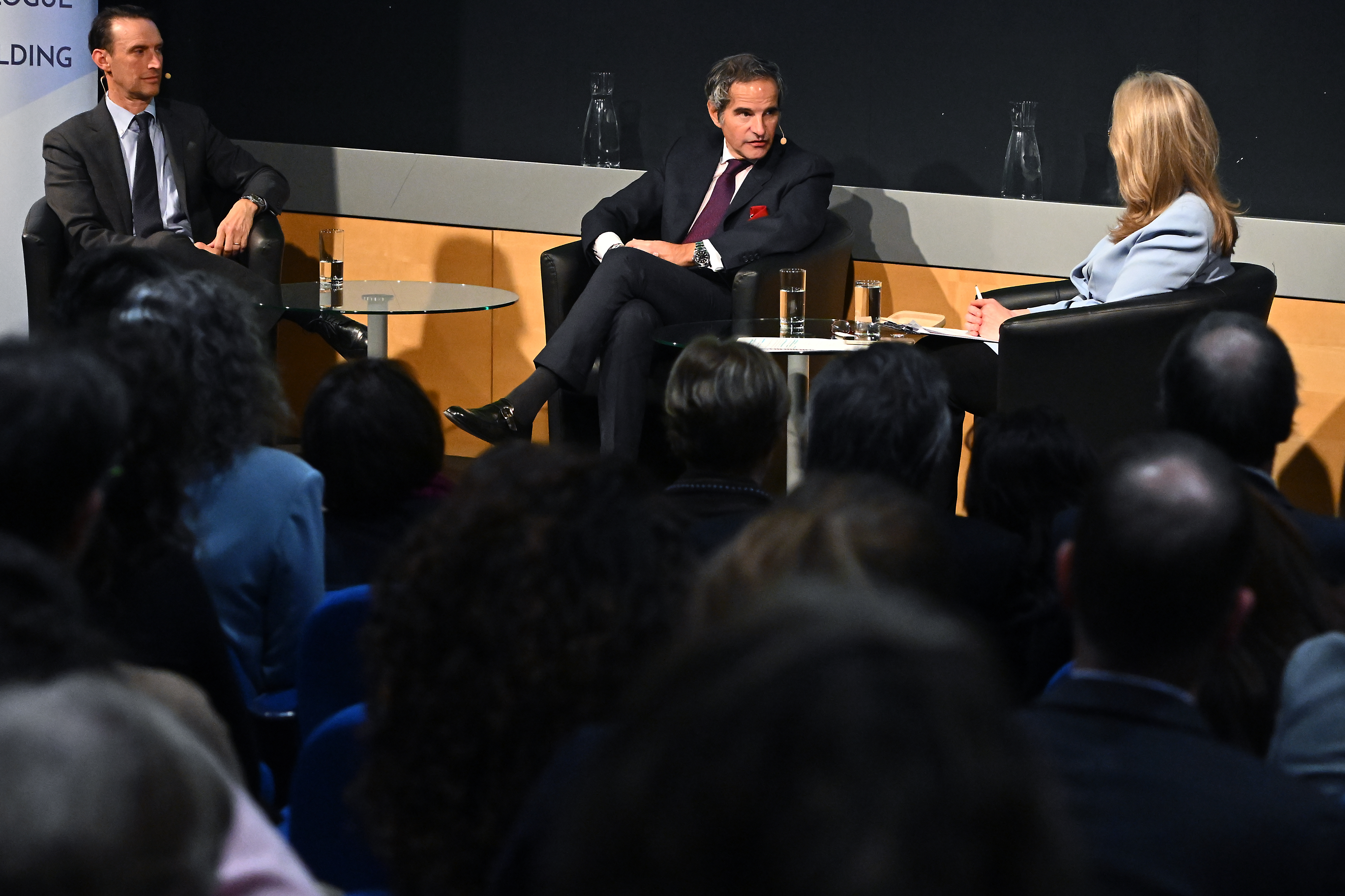
Director General Grossi explained that the IAEA and the Oppenheimer Project share this mission of building partnerships for nuclear technology. He illustrated the Agency’s efforts to raise awareness of the development potential of nuclear applications and the need for significant investment in scaling up peaceful uses, including a recently concluded Ministerial Conference on Nuclear Science, Technology and Applications and the Technical Cooperation Programme and the first ever International Conference on Stakeholder Engagement for Nuclear Power Programmes scheduled for May 2025. Despite limited success so far, Director General Grossi pledged to continue lobbying international financial institutions, philanthropies, development agencies, and others to invest in nuclear applications for clean energy, food security, healthcare, safe drinking water, and more.
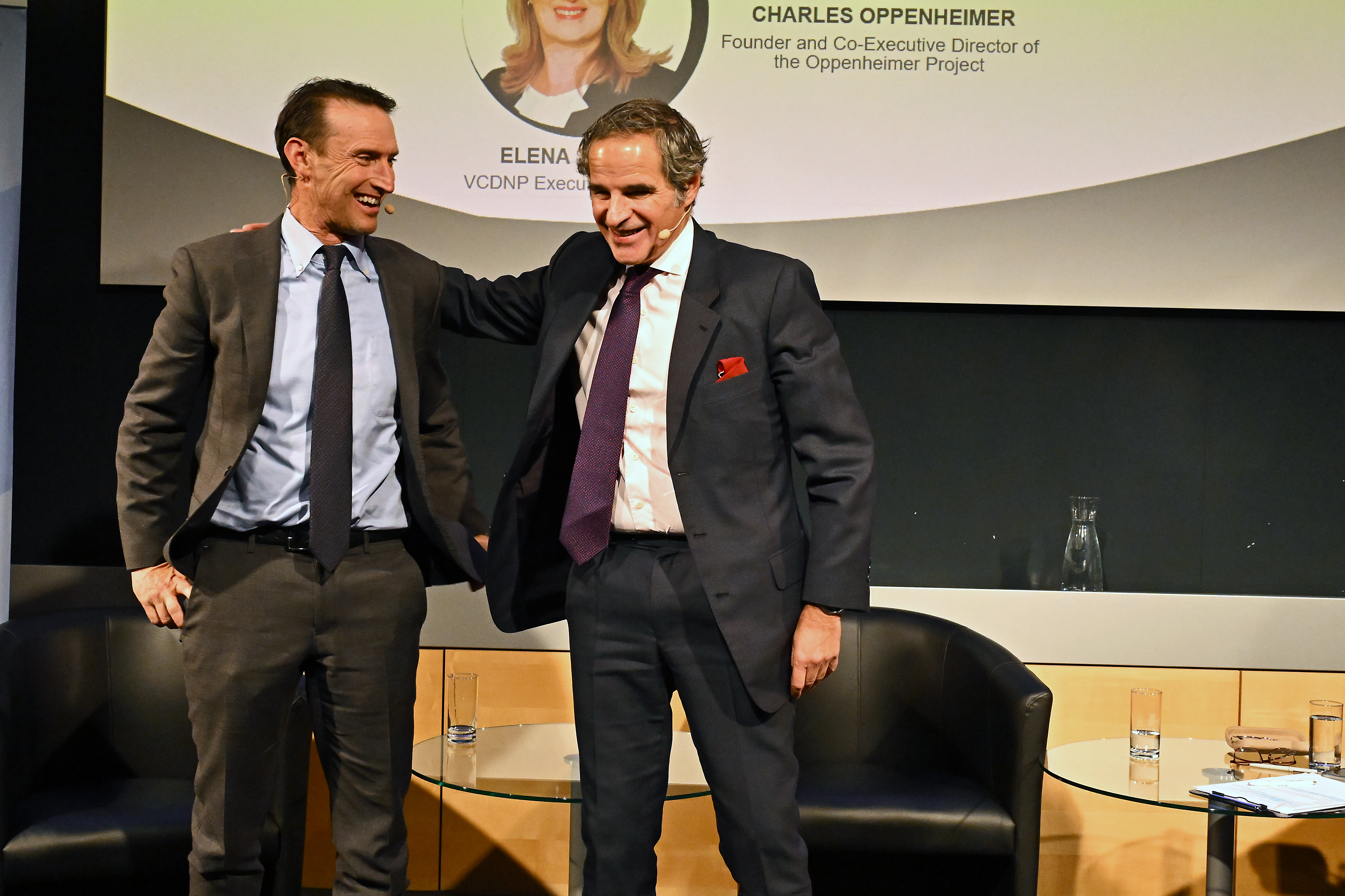
The VCDNP extends its gratitude to the Oppenheimer Project for its partnership in organising this event.

